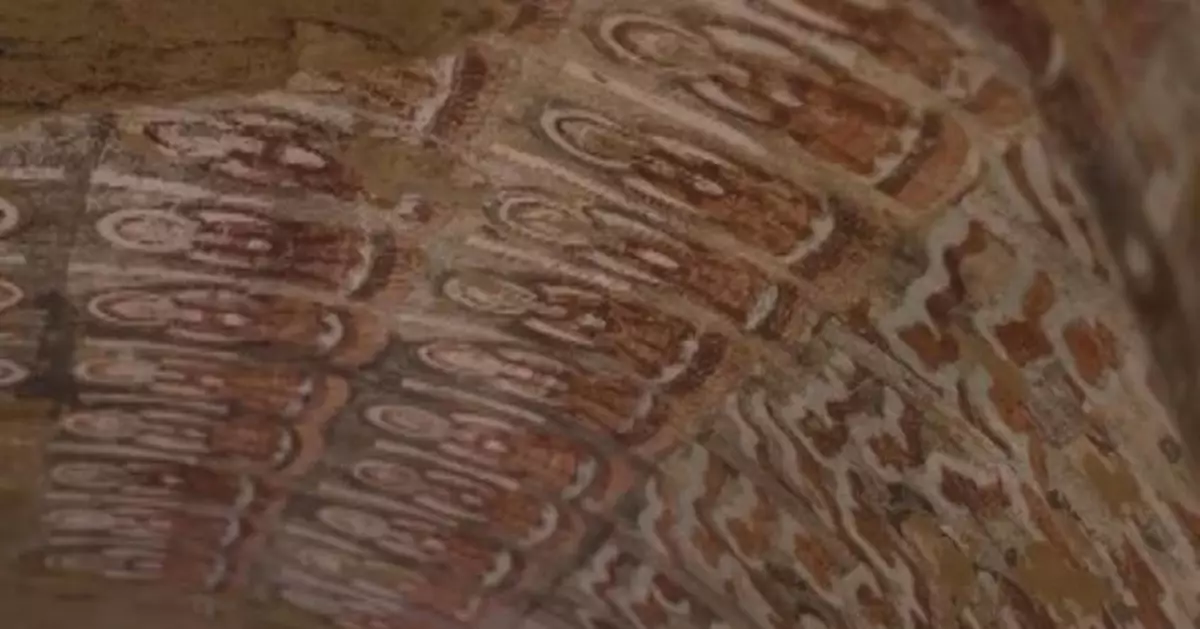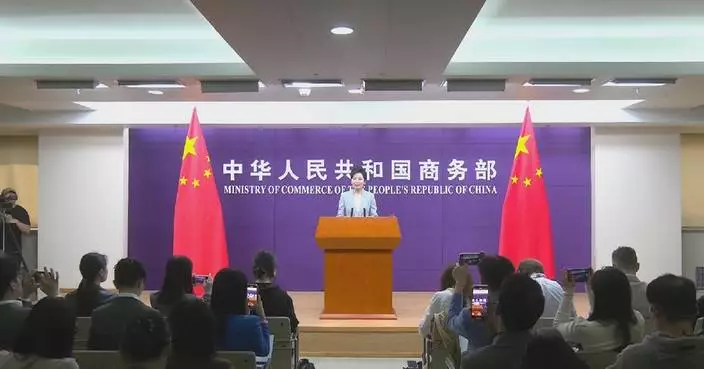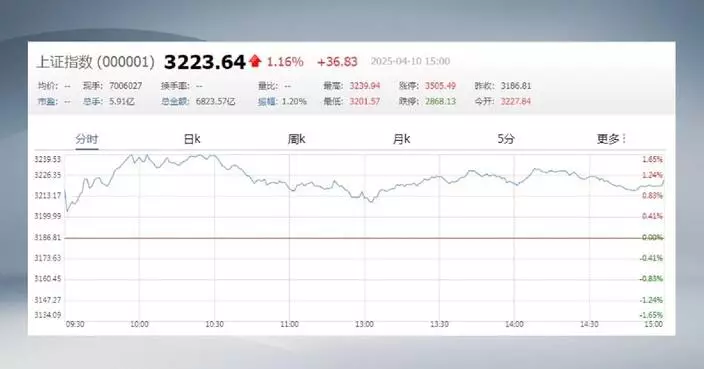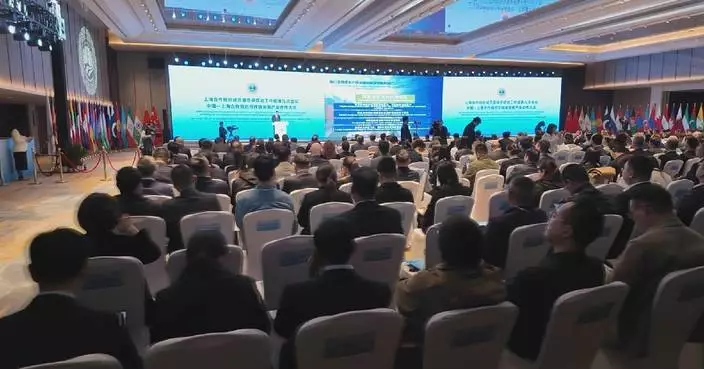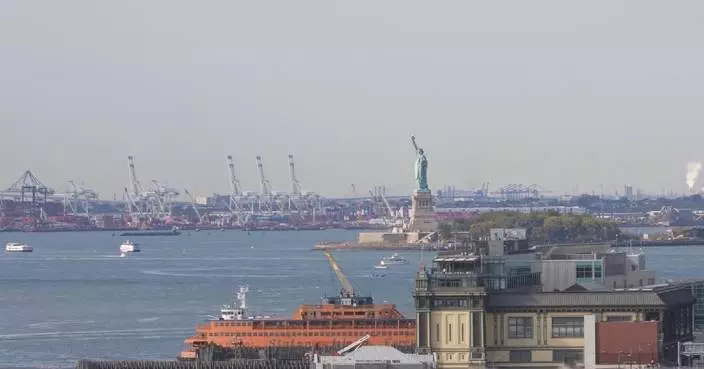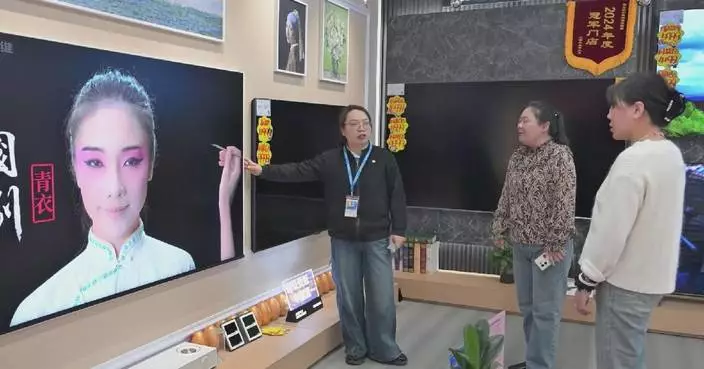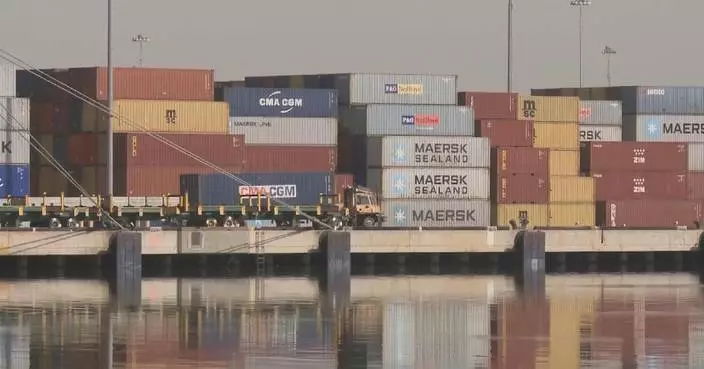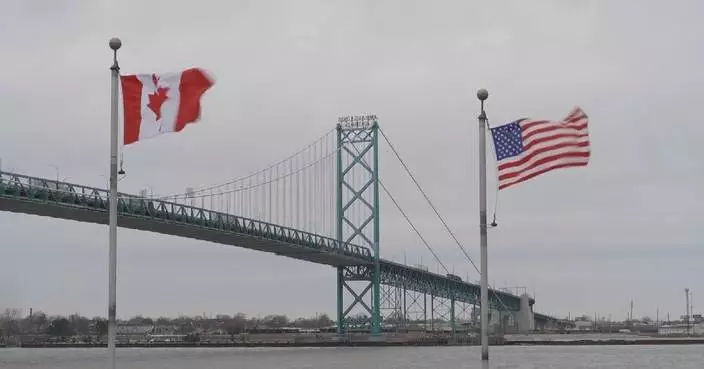Two Buddhist cave complexes along the ancient Silk Road in northwest China's Xinjiang Uygur Autonomous Region opened to the public for the first time on Saturday, drawing visitors during the Qingming Festival holiday.
The Ya'er Lake Grottoes, part of a UNESCO World Heritage site in Xinjiang's Turpan City, with numerous stunning murals and other collections, welcomed visitors following a year of restoration work and digital upgrades.
Formerly serving as a monastery, the grottoes comprise 22 caves dating back to the fifth century, containing Buddhist murals and inscriptions in multiple languages, including Chinese and Old Uygur.
The caves are arranged in two tiers: an upper level, which served as meditation spaces for monks, and a lower level, which likely functioned as a living area. Cave 4 and Cave 7 are currently open to the public.
"With the explanations from the guide, I learned about the history of that time. I also saw the original murals through VR glasses (AR glasses). It was truly stunning," said Guan Qinggen, a tourist from Urumqi.
The grottoes are part of the Jiaohe Ruins -- among the world's largest and best-preserved ancient clay cities and one of the sites along the ancient Silk Road added to the UNESCO World Heritage list in 2014.
"The digital approach can help tourist better understand the scale and the content of the murals preserved here from ancient times," said Wang Jiandong, head of the Jiaohe Ruins administrative office.
Some 40 kilometers away, four caves of the Shengjinkou Grottoes in Turpan also opened to the public on Saturday, set to offer 300 visitor slots per day.
"I'm so excited. I came here as soon as I heard about the opening. Witnessing this historical moment and connecting with thousands of years of history makes this trip truly worthwhile," said He Mengjie, a tourist from Xi'an City.
The Shengjinkou site has 13 caves dating back to the seventh century, where murals, woodware, pottery, fabrics, and paintings on silk have been unearthed.
Since 2012, China has invested 29.79 million yuan (4.14 million U.S. dollars) in five related conservation projects, including reinforcement and mural restoration, laying the groundwork for the public opening of the Shengjinkou Grottoes.
The Turpan Basin is home to 14 known grotto sites collectively encompassing over 400 caves, including the Shengjinkou and Ya'er Lake sites. As Turpan was a critical node on the ancient Silk Road, its grottoes reveal a unique fusion of Buddhist traditions, reflecting its role as a Buddhist hub linking Central Asia and China.
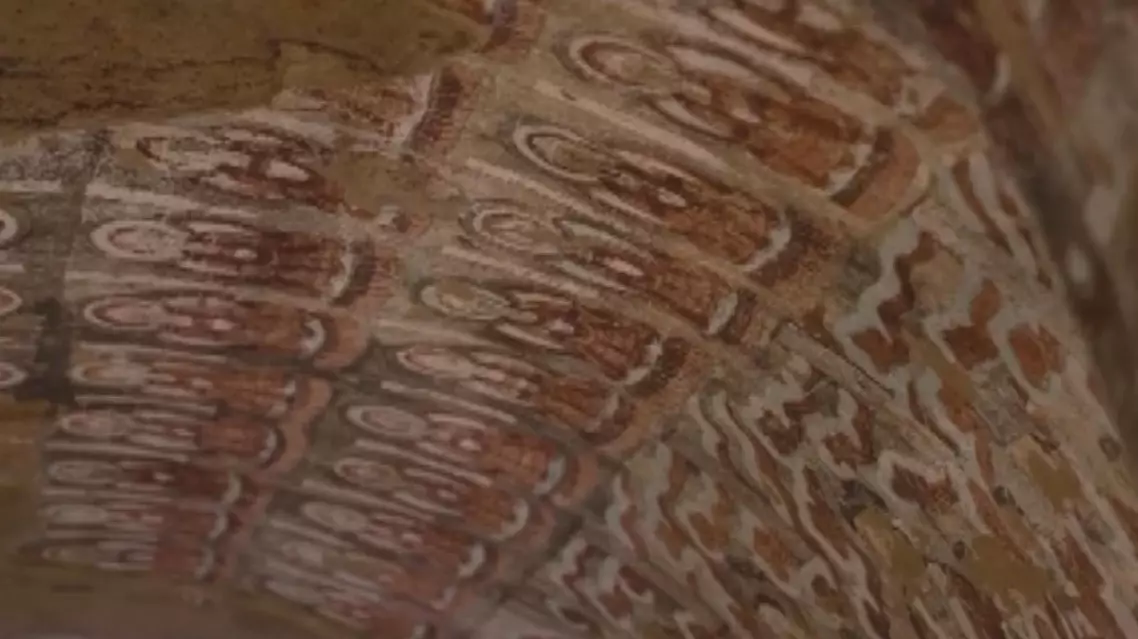
Ancient Silk Road grottoes in Xinjiang open to public
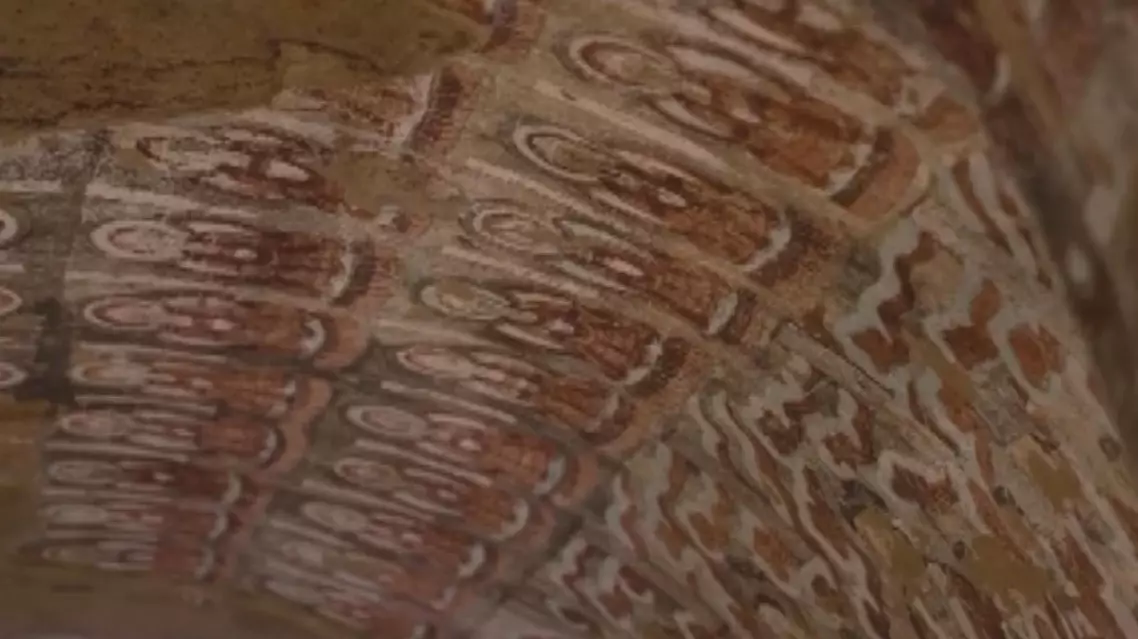
Ancient Silk Road grottoes in Xinjiang open to public
As the uncertainty surrounding the Trump administration's tariff policies fuels inflationary fears in the United States, a number of consumers have resorted to panic buying amid growing concerns that costs could shoot up.
With price hikes expected on goods such as automobiles, beauty products, and even on everyday food items, many residents say they have been rushing out to stock up before prices climb even further.
In recent street interviews with the China Global Television Network (CGTN), New York residents shared how the impact of the ongoing tariff war is affecting their daily lives.
"Actually, I already have. I've already started stocking up. My mother has a whole stockpile, and she's panicking. But I told her we're going to be okay, as we live in New York City," said Amelia Guilford, a retail worker who was visiting her mother in the city.
With many anticipating a rise in inflation, many Americans are concerned about the long-term financial impact, and say they are now being more prudent with their money.
"I think we have to [spend more carefully]. Because otherwise you're going to be in real trouble economically or in debt, because if you spend more than what you get, that's going to be a lot of trouble," said Jose Pena, a janitor.
The tariffs, which directly affect the price of imported goods, have led to predictions of significant price increases, particularly on goods coming from China, which has been the biggest target of the tariffs.
"[Products] from China are going to be more expensive. I cannot exactly name what kind of products one by one, but every one that comes from China is going to be more expensive, without a doubt," said Pena.
Public frustration is evident, with some questioning the logic behind U.S. President Donald Trump's risky and unpredictable pursuit of tariffs on other countries, as the debate over the long-term consequences of the policy intensifies.
"I think he's just making enemies, and I trust him not. And I think he's making a mess of everything. I think it's all going to come around and flip back. The changes he's doing are completely unsustainable," said Lois Adams, a nurse, as she expressed her disapproval of Trump's approach.
Ordinary Americans are facing up to the harsh reality of rising prices and remain anxious about the future economic impact of the continuing trade war.
Jerome Wilkins, a security worker, voiced concerns about the broader societal implications of the tariffs, warning it will again be the poorest people who suffer the most.
"I think that the tariffs are horrible. I think that it's like privatizing America, and instead of America being a country for the people, it's a corporation for the rich. And it's just for them to get richer, while the poor get poorer. And that's basically how I feel," said Wilkins.
Meanwhile, the Chinese government announced it would raise tariffs on all imported U.S. goods from 34 percent to 84 percent, effective Wednesday, in response to the U.S. decision to escalate its "reciprocal tariffs" on Chinese products, further adding to the economic strain.
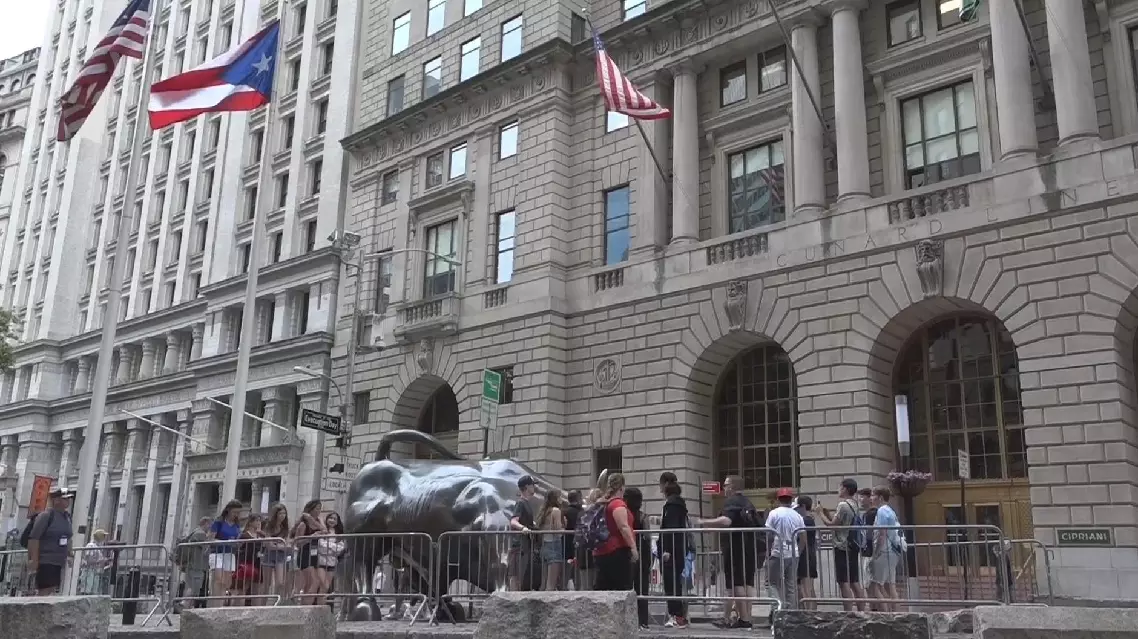
Tariff war triggers panic buying in US, raising public concerns over rising costs




